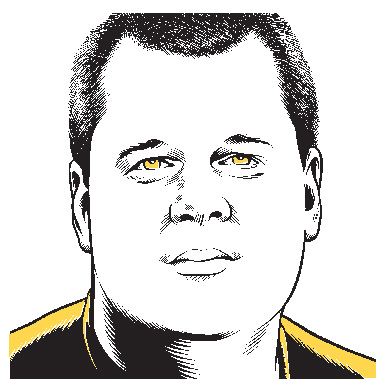- LAUREATE: Bjørnstjerne Bjørnson (Norway, 1903)
- BOOK READ: Beyond Human Might, translated by Edwin Björkman
Here is a quick test for you. Read the following passage:
ELIAS: Both of us believe that God is something we have to work out within ourselves. BRATT: Yes.
ELIAS: That He is evident in the eternal order of the universe, and that to man this order means justice—the growth of justice.
BRATT: And of goodness.
ELIAS: But isn’t He evident in war also? Could He stand outside of that? …
BRATT: There are so many kinds of war.
ELIAS: This is the kind I am thinking of: to sacrifice oneself in order to destroy those that will evil.
BRATT: If that kind of war comes within the order that is justice—?
ELIAS: Yes. [A MAN IN BROWN has stolen up close to them without being noticed by either one of them. At this moment he puts his head in between them, with his face close to that of BRATT.]
BRATT: Ugh! What is the use of that sort of thing? Why must he always come like that?
MAN IN BROWN [Crouching on his haunches, with his hands resting on his knees, begins to laugh wildly]: Ha—ha—ha—ha! [He hops around like a bird until, at a sign from ELIAS, he suddenly disappears.]
BRATT: Is it never possible to have a talk with you without that fellow getting in between us?
Now, then, answer honestly: what was the most interesting part, to you? Was it the conversation about God and war and sacrifice? Or was it when a man dressed in brown started hopping around like a bird?
Either way you’ll find more of this sort of thing in Beyond Human Might, one of the many, many works of Bjørnstjerne Bjørnson. His oeuvre includes novels, long poems, plays, and the lyrics to the Norwegian national anthem (“Yes, we love this country / as it rises forth / rugged, weathered, above the sea, / with the thousands of homes…”), earning him not only the Nobel Prize but a place in Norway’s De Fire Store, the Four Greats, in the company of Henrik Ibsen (of course, of course!), Jonas Lie (maybe that sounds a little familiar), and Alexander Kielland (no idea). Bjørnson’s profile, at least in the English-speaking world, is not, shall we say, at its zenith—and sadder still is my old and crumbly edition of his plays, in which quite a few pages were uncut. More than one hundred years ago, Charles Scribner’s Sons published this book by a Nobel Prize winner, and...
You have reached your article limit
Sign up for a digital subscription and continue reading all new issues, plus our entire archives, for just $1.50/month.
Already a subscriber? Sign in





